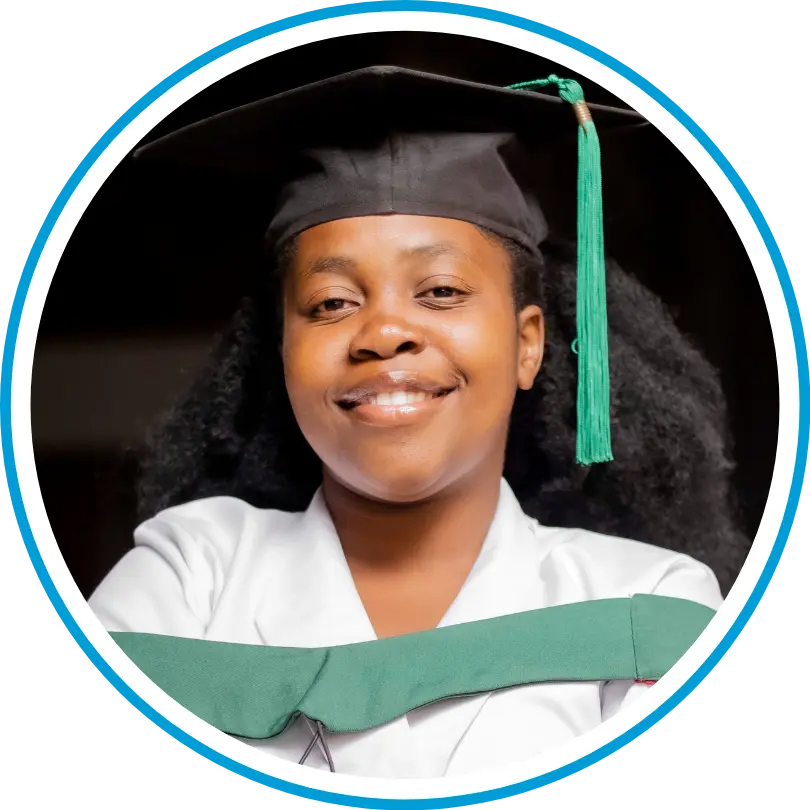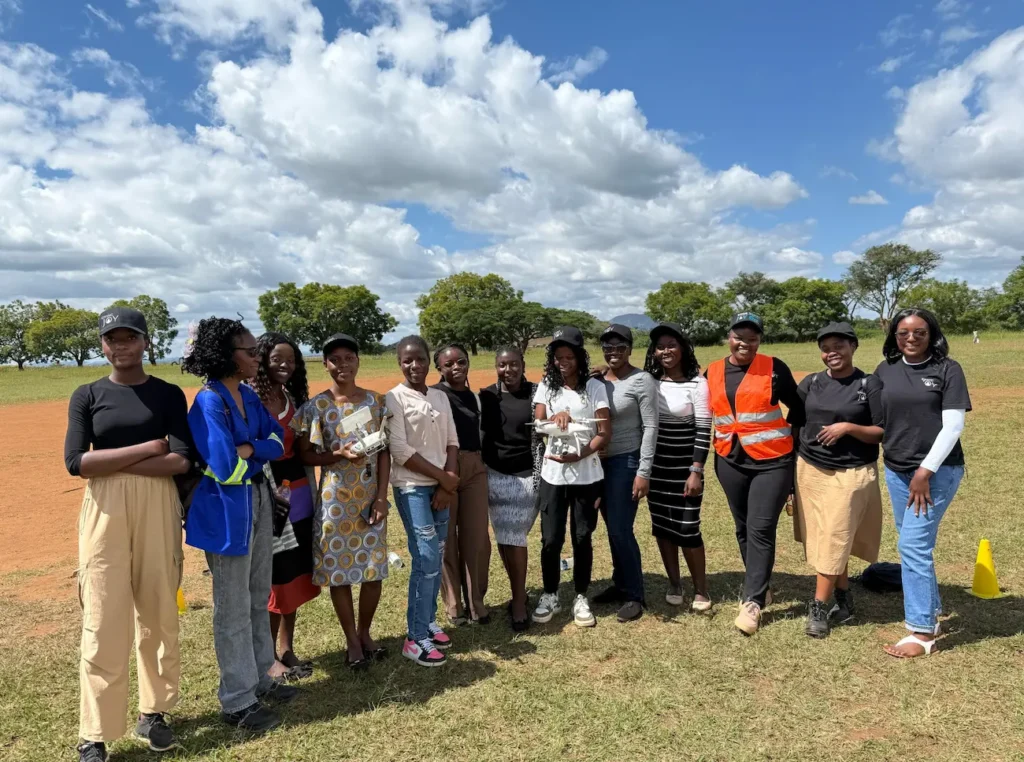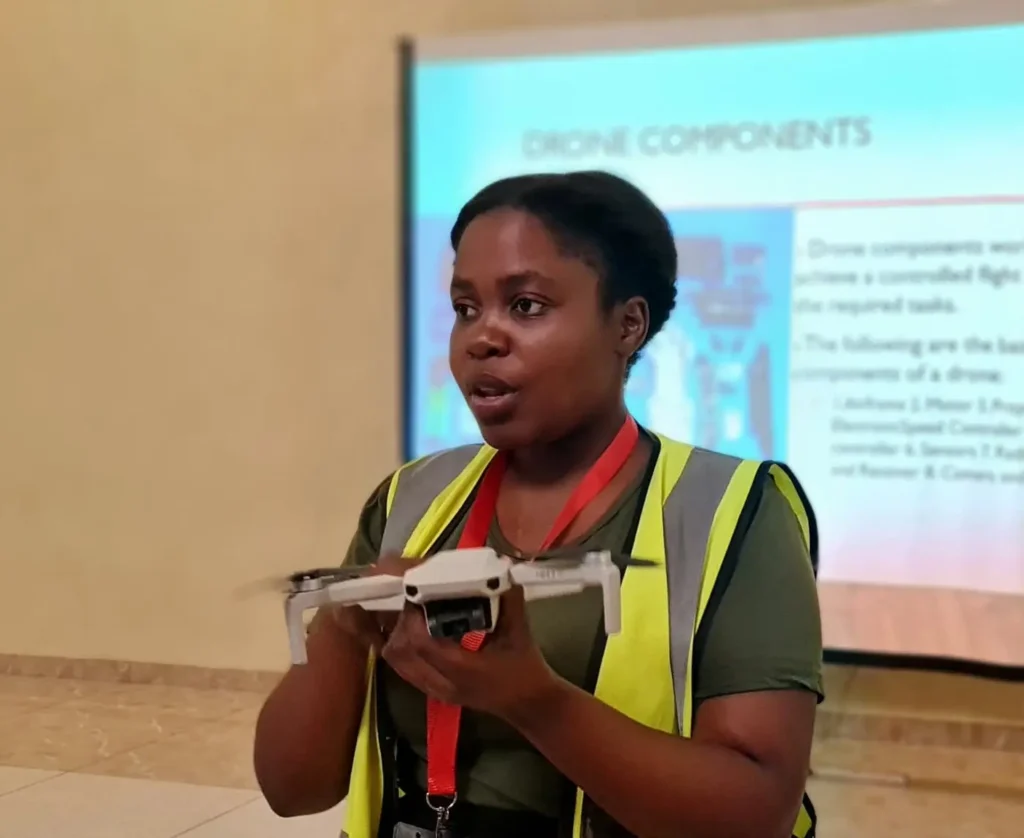Edith Hattie Kalagho
Edith Hattie Kalagho is a land surveyor, drone pilot, and passionate advocate for digital inclusion from Malawi. She is the Co-Founder and Program Manager of Spatial Girls Network, an initiative empowering girls and young women to lead in geospatial science and technology. Through hands-on training in open mapping, drones, and remote sensing, Edith is bridging gender gaps in digital transformation and building a future where women help shape solutions to climate, food security, and development challenges.

What does your work focus on?
I am the Co-Founder and Program Manager of Spatial Girls Network, an organization dedicated to empowering and inspiring girls and young women in geospatial science and technology to address community and global challenges. Our mission is built on four pillars: Connect, Train, Innovate, and Empower. We launched Spatial Girls Network in October 2024 after being recognized as 2024 Open Mapping Emerging Stars from Malawi by the Open Mapping Hub – Eastern and Southern Africa. This recognition inspired us to take action against the underrepresentation of women in geospatial fields.
Spatial Girls Network focuses on digital capacity building by equipping young women with the skills they need to participate in and lead digital transformation efforts. One of our key initiatives is Open Mapping and Open Data training. We work with YouthMappers in Malawi, a network of university students contributing to OpenStreetMap (OSM) to create open geospatial data for community development. In response to the gender gap in participation, we hosted a webinar to encourage female leadership and conducted a JOSM training in November 2024 to teach young women how to contribute to OSM.
In March 2025, we led a GeoSkills training for Climate Change and Food Security as part of Open Data Day. This engaged university students (60% women) in using open-source tools like KoboToolbox, HOT Export Tool, and QuickOSM. We also partnered with Nyasa Aerial Tech Solutions to train recent graduates in drones, GIS, and remote sensing—bridging the gap between academic knowledge and industry demands. Our volunteer program, launched in January 2025, selected 10 female volunteers to take part in these initiatives, helping them gain technical and leadership experience by serving as instructors in our programs.


What is the impact and scalability?
Since launching Spatial Girls Network in October 2024, our work has focused on inspiring and empowering young women in geospatial science and technology. Although we are still in the early stages, we have already seen signs of impact. Through our involvement with YouthMappers, we have acted as role models, encouraging more female students to engage in geospatial activities. For example, a YouthMappers chapter at one of Malawi’s universities invited us to speak to female students for empowerment and motivation—showing the value they see in our work.
We were also approached by Nyasa Aerial Tech Solutions to collaborate on a training program for 20 female graduates in drones, GIS, and remote sensing. Their invitation shows they recognize the credibility and effectiveness of our efforts. While we have not yet formally measured impact, these engagements demonstrate growing interest and early validation of our work from both students and industry partners.
Our mission is highly scalable. We envision more women taking leadership roles not only in university YouthMappers chapters but also in their communities, workplaces, and on national platforms. By equipping girls and young women with geospatial and digital skills, we empower them to contribute meaningfully to decision-making in areas like climate change, health, and disaster response. We are open to collaborations with government, private sector, and policymakers to expand our reach. With sustained support, Spatial Girls Network has the potential to transform the digital and geospatial landscape for women in Malawi and beyond.

What does being selected as an ITU160 Gender Champion mean to you, and how will you use this platform?
As a recent graduate and someone beginning my professional journey, I recognize there is still much to learn and explore in the digital and tech landscape. I have not yet had the opportunity to engage in international activities or work beyond Malawi, so being selected as an ITU160 Gender Champion would be a valuable opportunity for both personal and professional growth.
This platform would help me expand my knowledge, develop a more innovative mindset, and build confidence as I grow in my field. Exposure to global ideas, technologies, and networks is key to delivering impactful work. What I learn through this program will directly influence how I plan and implement Spatial Girls Network’s programs and events, helping us reach more young women and build longer-lasting impact.
Through this opportunity, I aim to stay in tune with emerging trends in digital transformation and use that insight to better support women in my community. Whether through technology, entrepreneurship, or advocacy, the skills and relationships I build as a Gender Champion will help me contribute to national and regional progress. I am excited about the possibilities this experience offers—not just for my own development, but for the continued growth of Spatial Girls Network and the broader movement to empower women and girls through digital technology.